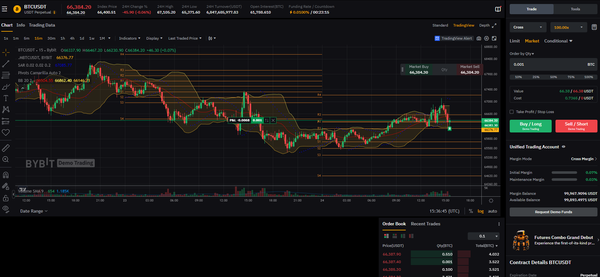Escape the Local Economy: How Cryptocurrencies Offer Unlimited Financial Freedom

In an increasingly interconnected world, cryptocurrencies present a unique opportunity for individuals to break free from the constraints of their local economies. This is particularly relevant for those living in regions heavily dependent on specific industries, such as tourism. Take, for instance, someone living in Jamaica or the Canary Islands. These places are renowned tourist destinations, but their economies are intrinsically tied to the ebb and flow of tourism, a sector notorious for its cyclical nature and vulnerability to external factors.
The Limitations of Local Economies
Tourism-dependent economies face several inherent limitations. Revenue is largely dictated by foot traffic, and there are only so many tourists that can be accommodated at any given time. Hotels and resorts have a finite capacity, and during off-peak seasons, they often struggle to maintain profitability. Moreover, the margins in service and product sectors catering to tourists are typically narrow, leaving little room for economic growth or stability.
The Crypto Advantage
Enter cryptocurrencies. Unlike traditional local economies, the crypto market operates 24/7, with no restrictions on participation. This constant availability means that individuals can engage in trading, investing, and various other crypto-related activities at any time, irrespective of their geographic location. The market's global nature ensures that participants are not limited by local economic conditions but can tap into a worldwide network of buyers and sellers.
- Decentralization and Accessibility: Cryptocurrencies are decentralized, meaning they are not controlled by any single entity or government. This decentralization offers individuals a level of financial freedom and autonomy that is unparalleled in traditional economies. With just an internet connection, anyone can access the crypto market, making it an inclusive financial ecosystem.
- Diverse Opportunities: The crypto space is vast and diverse, encompassing various activities such as trading, staking, lending, and yield farming. This diversity allows individuals to find niches that suit their skills and risk tolerance, providing multiple streams of income.
- Potential for High Returns: While cryptocurrencies can be volatile, they also offer the potential for significant returns on investment. Savvy investors can capitalize on market fluctuations and emerging trends to grow their wealth, often at a much faster rate than traditional investments.
- Innovative Financial Tools: The crypto world is at the forefront of financial innovation, with tools and platforms that offer new ways to generate income. Decentralized finance (DeFi) platforms, for example, provide opportunities for earning interest on crypto holdings, taking out collateralized loans, and participating in decentralized exchanges.
- Protection Against Local Economic Downturns: By participating in the global crypto market, individuals can hedge against local economic downturns. If the tourism industry in a region suffers due to political instability, natural disasters, or global pandemics, those engaged in the crypto market can continue to generate income independently of local conditions.
Hedging Against Inflation and Stagnant Wages
Another significant advantage of engaging in the cryptocurrency market is its potential as a hedge against inflation, especially in regions where wages remain stagnant. In many tourism-dependent economies, wage growth is often incremental and fails to keep pace with inflation, eroding purchasing power over time. Cryptocurrencies, with their high volatility and potential for substantial gains, offer a way to protect and even increase wealth in such environments.
- Leverage Trading on Perpetual Futures: One of the most powerful tools in the crypto market is leverage trading on perpetual futures. This allows traders to amplify their positions, providing limitless opportunities for profit. While it carries higher risk, the potential rewards far exceed the incremental wage growth typical in stagnant economies.
- Inflation Hedge: Traditional currencies often lose value due to inflation, diminishing the real income of individuals. Cryptocurrencies, particularly those with a limited supply like Bitcoin, can serve as an effective hedge against inflation. Their value is not tied to any single economy, making them a robust alternative to traditional savings.
- Income Diversification: By engaging in the crypto market, individuals can diversify their income sources. This diversification is crucial in hedging against local economic and wage stagnation. Crypto earnings can complement traditional income, providing a buffer against economic instability.
Access to Global Exchanges
Regions like the Canary Islands and developing countries have access to major cryptocurrency exchanges such as Bybit and Binance, which require Know Your Customer (KYC) verification. This access provides an edge over the United States, where strict regulatory requirements from entities like the SEC and the CFTC prevent these exchanges from operating. This disparity raises questions about whether these areas can capitalize on the United States' cautious approach to innovation and potentially become global hubs for cryptocurrency trading and investment.
A Real-World Example
Consider an entrepreneur in Jamaica who runs a small beachfront hotel. During the off-peak season or in times of crisis, guest numbers dwindle, impacting their income. However, by diversifying their portfolio to include cryptocurrency investments, they can maintain a steady revenue stream. They might invest in stablecoins to earn interest, trade popular cryptocurrencies to capitalize on market movements, or engage in leverage trading on perpetual futures for higher returns. This dual approach not only stabilizes their income but also provides financial growth opportunities that are not tied to the local economy.
Conclusion
Cryptocurrencies offer a promising alternative for individuals tethered to the limitations of their local economies. By tapping into the global, decentralized, and 24/7 nature of the crypto market, they can unlock new financial opportunities, achieve economic resilience, and hedge against inflation and wage stagnation. Furthermore, access to global exchanges like Bybit and Binance provides a significant advantage over regions with stricter regulations, potentially allowing these areas to lead in the evolving digital economy. As the world continues to evolve, embracing cryptocurrencies could be a pivotal step towards financial independence and growth.




